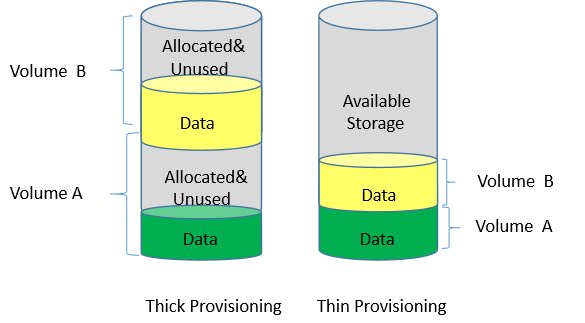How to avoid vendor lock-in?
Single-vendor solutions are usually easier to implement and manage, but are also easier to lock in. When you need a new storage system, you may purchase storage arrays based on workload requirements. Traditionally, these systems included hardware and software, and you are locked in to purchase additional hardware for the system from the same vendor. When you need to increase storage capacity, or want to create multiple sites, you need to buy from the same vendor. You are locked into that vendor's technology road map and its price.
If you don't want to be locked in by hardware vendors, you can choose software-defined storage. However, can all software-defined storage prevent you from being locked in by vendors?
Some software-defined storage products claim to be software-defined, but they depend on specific hardware in the Hardware Compatibility List (HCL), driver compatibility issues often occur, and hardware and software vendors often blame each other.
If you store data on the cloud, can you avoid vendor lock in? Then, you are also locked in by the cloud vendors.
So how to avoid being locked in by the vendors? You need a storage product that can meet the following conditions:
- It cannot be locked in to a specific hardware system, and can be deployed on any physical machine, bare metal or virtual machine, so that you will not be locked in by any hardware vendors.
- Supports elastic expansion. When you need to expand the system, you can purchase servers or disks of any brand and configuration, and you can easily add devices to the system to expand storage space.
- Data migration is very convenient. When you want to migrate the system from one cluster to another, you can easily perform operations without interrupting your business.
- Supports heterogeneous hardware. Because it is not locked in by hardware vendors, in the same storage system, there may be servers or disks from multiple hardware vendors with different configurations.
Is there a storage product that can meet all the above conditions? That is QStora.
QStora can be easily installed on the Linux operating system of any brand and any configuration of physical servers, bare metal servers, virtual machines and even container instances. It is completely decoupled with hardware drivers, so you can freely use the latest hardware on the market. There is no device driver compatibility issue.
The QStora architecture is scale-out (by adding more disks or servers), rather than scale-up (increasing capacity by replacing storage box with larger one). This means that QStora can be independently expanded based on IOPS, storage space and bandwidth. QStora supports flexible expansion methods: adding new disks to increase the capacity of existing server and adding new servers. After the expansion, there is no need to relocate a large amount of data, and the system can automatically achieve load balance. With QStora, you will no need to make large upfront investment in the initial stage. You can use the commodity hardware, which is inexpensive and straight-forward to use, and you can add servers and disks on demand at any time, without interrupting the business continuity.
QStora runs as a group of user-mode processes, does not rely on any specific version of Linux kernel or distribution, does not rely on, or modify the operating system. Therefore, you can easily migrate the data in one QStora cluster to another cluster. The migration steps for reference are given in the typical solution on the website.
QStora supports heterogeneous hardware. Each Linux operating system instance in the cluster could have different hardware configurations, such as different numbers of CPUs, different sizes of memory, different capacities of local hard drives, different types of storage medias, etc.
QStora is the product you are looking for. If you want to quickly verify our product, you don't need to send emails, call, or pay. Just register as a user on www.qstora.com, and then you can download the software installation package. QStora is free to download, install and use at the current stage, and user can obtain online technical support through this website. Find one or a few idle servers to try QStora, and you will be pleasantly surprised for it!

Comments
Post a Comment